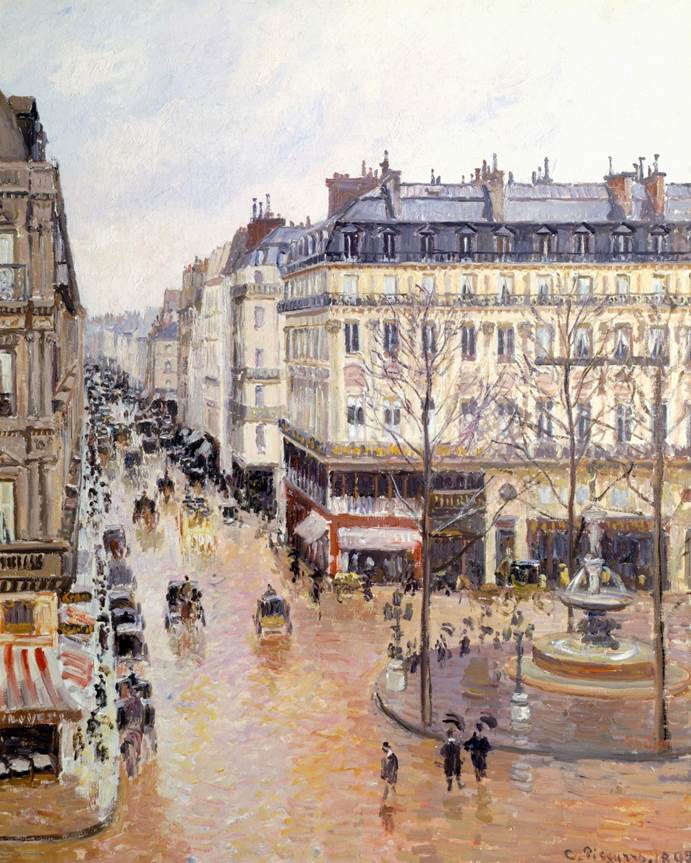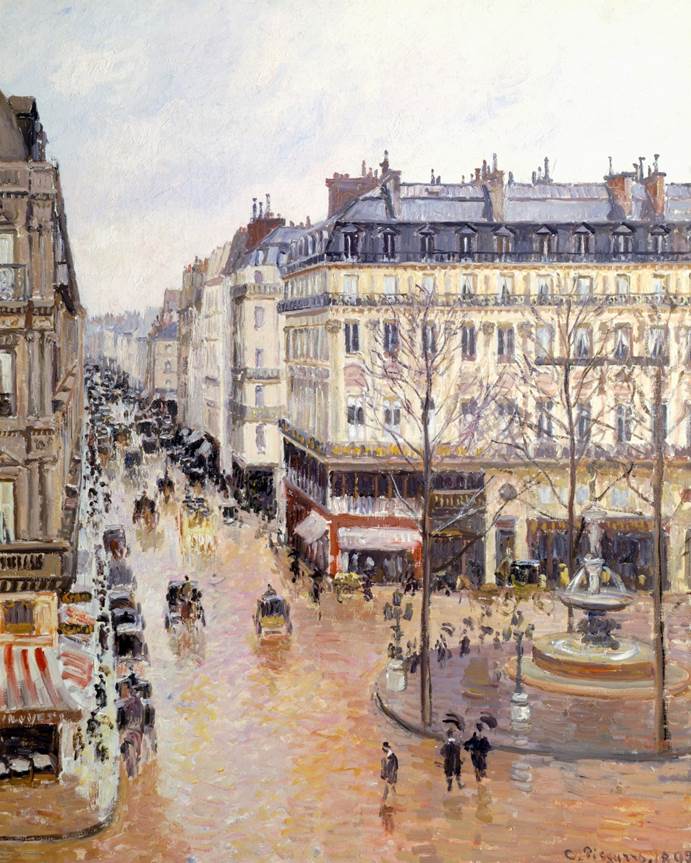The U.S. Court of Appeals for the Ninth Circuit yesterday affirmed the 2019 judgment that allowed the Thyssen-Bornemisza Collection Museum in Madrid to retain Camille Pissarro’s Rue St. Honoré, après-midi, effet de pluie (Rue St. Honoré, Afternoon, Rain Effect) (1892), a painting sold under duress by Lilly Cassirer to a Nazi in 1939. Absent rehearing by the full Ninth Circuit or Supreme Court review, the decision may bring to an end the Cassirers decades-old effort to win restitution of a painting that no one disputes is Nazi-looted art, yet the museum refuses to return. The result turns on the highly deferential standard of review for findings of fact by the trial court about the state of knowledge by Baron Hans-Heinrich Thyssen-Bornemisza when he acquired the painting in 1976. Yet the Ninth Circuit’s lack of enthusiasm for this result fairly leaps off the page, however, first with its decision to issue an unsigned opinion not for publication, and by seconding the District Court’s disappointment in the ruling under review “that Spain and TBC’s refusal to return the Painting to the Cassirers is inconsistent with Spain’s moral commitments under the Washington Principles [on Nazi-Confiscated Art] and Terezin Declaration.” The Court of Appeals’ statement about Spain and the museum that “It is perhaps unfortunate that a country and a government can preen as moralistic in its declarations, yet not be bound by those declarations” is a reminder of the limitations of these moral imperatives that, ironically, many current possessors argue are sufficient to address the problem of Nazi-looted art. It is absolutely true that moral principles often do not have the force of law. It is equally true, however, that flouting moral principles warrants moral sanction. And as multiple judges of the United States have found, Spain deserves just that.
“Moralistic Preening” and Broken Commitments Under the Washington Principles—Ninth Circuit Chastises Spain for Keeping Nazi-looted Pissarro but Rules Painting Will not Return to Cassirer Family
Topics: Terezin Declaration, Thyssen-Bornemisza Collection, Rue St. Honoré après-midi êffet de pluie, Claude Cassirer, Cassirer, Foreign Sovereign Immunities Act, Washington Principles on Nazi-Confiscated Art, Stiftung Preussischer Kulturbesitz, FSIA, expropriation exception”, Baron Hans-Heinrich Thyssen- Bornemisza, Welfenschatz, A Tragic Fate, Reichskammer der bildenden Künste, Jakob Scheidwimmer, Reich Chamber of the Visual Arts, Madrid
Thyssen-Bornemisza Prevails Over Cassirer Heirs' Claim to Pissarro Taken by Nazis Despite Acts “Inconsistent with the Washington Principles”
One of the longest-running court cases in the United States about art looted by the Nazis has been decided in favor of the current possessor, the Thyssen-Bornemisza Museum in Madrid, an instrumentality of the Kingdom of Spain. The U.S. District Court in Los Angeles ruled on April 30, 2019 against the heirs of Lilly Cassirer, a German Jew whom the Nazis targeted in 1939 for a forced sale of Rue Saint–Honoré, après-midi, effect de pluie (1892). The ruling is the second time that the museum has prevailed in the District Court as the owner of the painting under Spanish law, now on the grounds the museum did not know of the painting’s looting history when it acquired the work and that it held the work publicly for long enough to become its owner even though it had been stolen. The ruling, while favorable to the museum in this case, confirms important principles about the inability of successive possessors to acquire good title to artworks stolen by the Nazis, and the importance of diligence and pursuing questions raised by red flags in the chain of title. Notable as well was the Court’s pointed criticism of Spain for failing to adhere to the spirit of the Washington Principles on Nazi-Confiscated Art, and Spain’s failure to “comply with its moral commitments.”
Topics: Walter Feilchenfeldt, Third Reich, Terezin Declaration, Gestapo, Lilly Cassirer, Claude Cassirer, Jacques Goudstikker, Nazi-looted art, Czechoslovakia, Spain, Washington Principles, Baron Hans-Heinrich Thyssen- Bornemisza, A Tragic Fate, Law and Ethics in the Battle Over Nazi-Looted Art, Reichskammer der bildenden Künste, flight taxes, Rue Saint–Honoré, Julius Cassirer, Paul Durand-Ruel, Ludwigstrasse, Dr. Cassirer and Co. Kabelwerke, Jakob Scheidwimmer, Sydney Schoenberg, Hahn Gallery, Thyssen-Bornemisza Museum, Military Government Law No. 59, Reich Chamber of the Visual Arts, Ari Walter Kampf, Eugen Kampf, Knoedler & Co. Gallery, encubridor




